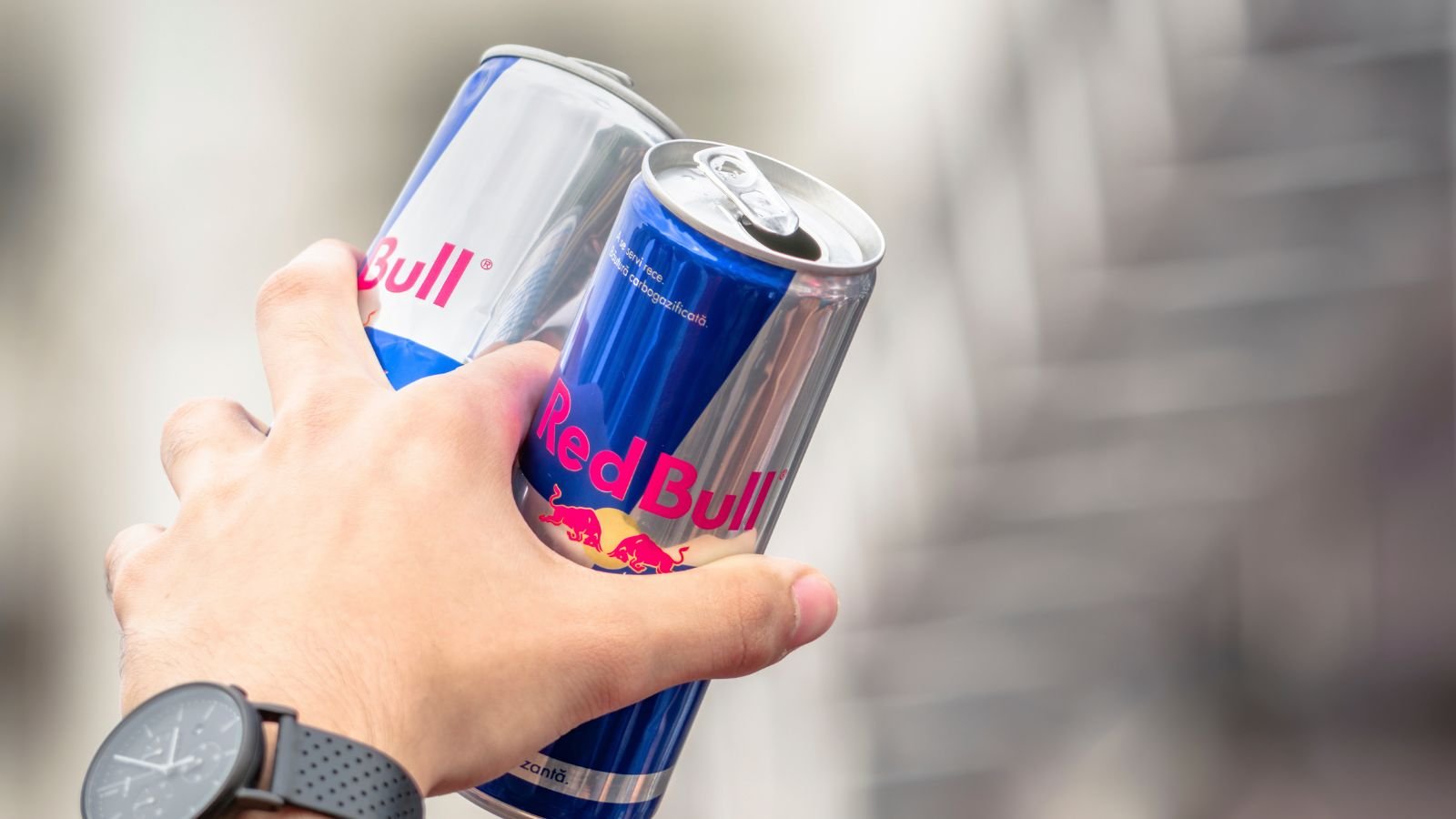Fitness is not only about exercise but also about what you eat. Being mindful of your diet is crucial, as the right food provides the necessary nutrition and fuels your body, while the wrong food can hinder your progress and harm your health. If you are a fitness enthusiast, what you put in your grocery basket is just as essential as your workout routine. To help you make healthy food choices, here is a list of 20 things you should avoid putting in your grocery basket to achieve your fitness goals and ensure your overall well-being.
Packaged Foods

Packaged foods such as cookies, muffins, pastries, and biscuits are loaded with high sugar, unhealthy fats, and preservatives. While these foods are tasty and convenient, they are quite harmful to your health.
According to the U.S. FDA and the American Heart Association, trans fat can increase the risk of heart disease and type 2 diabetes. Almost all packaged foods contain trans fat; even those that claim 0 grams of trans fat often still use some of it.
Processed Meats

Processed meats such as bacon, sausages, and deli meats contain unhealthy fats, sodium, and preservatives. These foods are very harmful to health and are linked to diseases like cancer, high blood pressure, and heart disease.
Instead of processed meats, fitness enthusiasts should opt for unprocessed protein sources like fish, chicken, and plant-based protein, which are healthier choices.
White Bread

White bread is made from refined flour, which lacks essential nutrients and fiber and contains only carbs and calories. The low nutritional value of refined flour causes blood sugar levels to crash and does not provide sustained energy or help in muscle recovery. It also contains gluten, which helps the dough rise and gives the bread an elastic texture. However, some people may have difficulty digesting it. People focused on fitness should choose whole-grain bread, as it provides complex carbohydrates, nutrition, and fiber.
Soda

According to the CDC, soda contains high sugar and no nutritional value. It also includes many harmful ingredients, such as caramel color, phosphoric acid, and high fructose corn syrup. Regular consumption of soda can add calories, leading to weight gain and an increased risk of heart disease and diabetes. The CDC also stated in its report that high consumption of sugar-sweetened beverages increases screen time in people.
Flavored Oatmeal

While oatmeal is generally considered healthy due to its many nutrients, flavored oatmeal is a different story. It contains added sugar, artificial flavors, and preservatives that reduce its nutritional value. It is better to choose plain oatmeal and top it with fruits, nuts, and seeds to enhance flavor, nutrition, and fiber without compromising health benefits.
Gummy Candy

Gummy candies, available in various flavors, are full of sugar and have no nutritional value. This sweet treat can significantly harm your health, as it contains 2 to 8 grams of sugar per serving. This amount of sugar might seem harmless but regularly consuming more than one candy can increase the risk of several chronic diseases and undermine your energy level, impacting the balance required for a workout.
According to the American Heart Association, women should consume no more than 25 grams of sugar daily, while men should limit their intake to 36 grams. Instead of these candies, consider frozen grapes to satisfy your sweet cravings.
Reduced Fat Peanut Butter

Choosing reduced-fat peanut butter might seem like a healthier option, but it’s actually less healthy than regular full-fat peanut butter. To reduce the fat content, manufacturers often add more salt or sweetener and other unhealthy ingredients to make it taste better, diminishing its nutritional value and harming your health. On the other hand, regular peanut butter is a healthy source of fat-soluble vitamin E, an antioxidant important for eye, heart, and immune health.
Fat-Free Ice Cream

Just like reduced-fat peanut butter, fat-free ice cream is also a myth. Removing fat means adding artificial sweeteners and flavors to maintain the taste and texture. These additives are harmful and can cause health issues in the long run.
These artificial sweeteners may cause gastrointestinal distress, as your body may find it difficult to digest them properly, leading to issues such as bloating, gas, and diarrhea. It is better to have regular ice cream in small quantities to satisfy your cravings occasionally than to include fat-free ice cream in your diet.
Energy Drinks

Energy drinks are high in caffeine, sugar, and artificial ingredients. While they may provide an instant rush, they are far more harmful than you might realize. Excessive caffeine and sugar can lead to an increased heart rate, dehydration, jitters, and insomnia, quickly followed by a crash. Water, herbal tea, or homemade smoothies are a much better natural option for sustained energy and hydration.
Instant Noodles

Instant noodles are tasty, easy, and convenient, but they are high in sodium, unhealthy fat, and artificial additives while being low in nutritional value. Additionally, these noodles contain MSG and TBHQ, which can be very harmful to your health.
Excessive consumption of TBHQ may lead to neurological damage, an increased risk of lymphoma, and liver enlargement. While MSG can cause headaches, nausea, high blood pressure, weakness, muscle tightness and skin flushing. If you are a fitness enthusiast, avoid adding instant noodles to your grocery basket to achieve your fitness goal and maintain an active lifestyle.
Packaged Fruit Juices

The belief that packaged fruit juices are healthy is a myth. They are high in sugar and lack dietary fiber, making them unhealthy and harmful to your health. Regular consumption of these fruit juices can increase the risk of chronic disease and may lead to weight gain. Artificial additives and high sugar can disrupt your digestion and blood sugar levels. Fresh fruit juices are a better choice as they provide essential nutrients, fibers, and a more balanced natural sugar intake.
Processed Cheese

Don’t be fooled into adding processed cheese to your grocery basket in the name of a healthy diet. Processed cheese is high in sodium and unhealthy fats, offering little nutritional value. To maintain its taste and texture, the manufacturer adds preservatives, coloring, and emulsifiers, which detract from the nutritional benefits of cheese. By opting for natural cheese instead of processed cheese, fitness enthusiasts can ensure the right intake of nutrients that support muscle recovery and maintain energy levels.
Microwave Popcorn

Microwave popcorn contains trans fat and artificial flavoring, such as diacetyl, a chemical that gives it a buttery flavor and aroma. This chemical is linked to serious lung diseases, like “popcorn lung”. Additionally, perfluorinated compounds (PFCs) used in popcorn bag packaging are harmful when heated and can cause cancer. Choose natural snacks that provide essential nutrients without unnecessary preservatives to maintain your fitness goals.
Frozen Dinners

Frozen dinners are convenient but unhealthy and lacking in nutrition. They are not fresh and high in sodium, unhealthy fats, and preservatives. Additionally, the portion size of these meals is often misleading, potentially leading to overeating. Many frozen meals contain chemicals like TBHQ, BHA, and BHT, which can be very harmful to your health.
To ensure proper nutrient intake, maintain a healthy diet, and achieve your fitness goals, prepare your meal from scratch using fresh vegetables and other wholesome ingredients.
